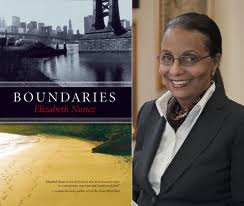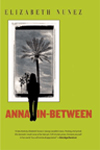Posts Tagged‘Fiction’
Quotation of the Week: Leslie Epstein
Responding to an interview question (“Are there a lot of plotless stories in your [Boston University M.F.A.] program?”), Leslie Epstein said:
When they enter the program, but not when they leave. I’m always stressing these things. Plot and dialogue. I say just sit your people down at a dinner table and have them start talking. One of the main things: keep out of people’s heads. Do not write like Virginia Woolf if you want to get through this year. What people do and what they say is, for the most part, all we need to know. No dreams, no memories, no photographs. Nor wind chimes. Nor moonlight. Show us what people do an d say. Of course every one of these rules is meant to be broken, but you have to justify breaking them.
What do you think?
(This snippet comes from an interview, conducted by Spencer Wise, in the latest issue of The Southeast Review. The print copy is one of the reasons I sign up for SER‘s writing regimens.)
Monday Morning Markets/Jobs/Opportunities
- Really interesting opportunity for poets in the five boroughs of New York City: “Poets House is proud to inaugurate its Emerging Poets Residency Program. Funded by a generous grant from the Jerome Foundation, this program offers focused, rigorous and nurturing peer support, as well as a robust professional network of contacts and advisors who assist each emerging poet with his or her artistic development. The program includes weekly workshops, mentoring sessions, guest speakers, free access to Poets House’s events and resources and culminates in a final reading. Childcare and transportation support is available for participants.” There is no application fee. Deadline: December 1, 2011.
- “The Brooklyn Film & Arts Festival is pleased to announce the establishment of the ‘Brooklyn Non-Fiction Prize.’ The Brooklyn Non-Fiction Prize, a cash award of $400, will be awarded to the best Brooklyn-focused non-fiction essay or short story which is set in Brooklyn and is about Brooklyn and/or Brooklyn people/characters. We are seeking compelling Brooklyn stories from writers with a broad range of backgrounds and ages who can render Brooklyn’s rich soul and intangible qualities through the writer’s actual experiences in Brooklyn. From the collection of selected Brooklyn Non-Fiction Prize submissions, five authors will be selected to read from their work and discuss their Brooklyn stories with the audience at our December 16, 2011, Brooklyn Film & Arts Festival program in partnership with St. Francis College in the Maroni Theatre. These stories and several other submitted stories will be published on the Brooklyn Film and Arts Festival website and made available to the public.” There is no entry fee. Deadline: November 25, 2011. (via Poets & Writers)
- Tomorrow, Orion magazine opens for a (brief) window during which unsolicited work may be submitted. The window closes on November 15, 2011. NB: “No unsolicited poetry, please.”
- A paid media project internship (20 hrs/week) is available with the California Council for the Humanities (San Francisco). Pays: $15/hour.
- The November issue of The Practicing Writer went out to subscribers on Saturday. As usual, the newsletter features LOTS of paying calls and no-fee competitions for poets, fictionists, and writers of creative nonfiction. If you’re not a subscriber, you can find the current issue here.
- Nonprofit Quarterly (Boston) seeks a Senior Online Editor, the Children’s Literacy Initiative (Philadelphia) is looking for an Executive Director, and Columbia University (New York) invites applications for a Director of Publications (req. #064000).
- Fitchburg State University (Mass.) seeks an Assistant Professor (English/Professional Writing): “Full time, tenure track assistant professor position in English Studies, with a specialty in creative nonfiction and fiction writing. Courses include, but are not limited to: Feature and Magazine Writing and Editing and Publishing, as well as first-year writing. Development of new courses that support the English Studies curriculum is also required. All courses will have a focus on writing in the digital environment as well as for traditional media.”
- “The Department of English at Northern Michigan University invites applications for a tenure track position in creative writing: Fiction. MFA or PhD required. Expectations include publications, successful teaching experience at the college level, the ability to teach undergraduate and graduate workshops, and undergraduate composition and/or literature courses.”
- From Colorado State University: “Assistant Professor of Creative Writing:
Nine-month, tenure-track appointment with a 2-2 courseload to begin August 15, 2012. Specialization in Fiction and Creative Nonfiction.”
- “The Department of English and Communications at Norwich University [Vt.] invites applications for a tenure-track English faculty position in creative writing, with specialization in creative nonfiction and poetry, to begin fall 2012. All faculty teach a 4/4 schedule of courses; for this position, the schedule will include freshman composition, world literature surveys, and introductory and advanced creative writing.”
Thursday’s Work-in-Progress: On the Dangers of Disrupting the Fictional Dream
One of the best things about the surgery that I underwent last month is that–just as we’d hoped–it has corrected a medical problem and therefore vastly improved my quality of life. For instance, for a long time before the surgery, I was often unable to make (or keep) plans with friends and family because I was often too exhausted and/or housebound.
And I missed so many literary events that I would have loved to attend.
 Last week, as you’ll remember, I wrote about a Jhumpa Lahiri reading that I’d just attended. This week, I had the privilege of going to a launch event for Boundaries, the latest novel by Elizabeth Nunez. I’ve been lucky to get to know Elizabeth through my work at The City University of New York, where she is a Distinguished Professor of English at Hunter College. (And I assigned and edited this profile of her after her novel Anna In-Between was published in 2009.)
Last week, as you’ll remember, I wrote about a Jhumpa Lahiri reading that I’d just attended. This week, I had the privilege of going to a launch event for Boundaries, the latest novel by Elizabeth Nunez. I’ve been lucky to get to know Elizabeth through my work at The City University of New York, where she is a Distinguished Professor of English at Hunter College. (And I assigned and edited this profile of her after her novel Anna In-Between was published in 2009.)
Boundaries is a sequel to Anna In-Between, and I’ve just begun reading it. At the Americas Society here in New York on Tuesday evening, Elizabeth was interviewed by literary critic and professor Donette Francis. Toward the end of the evening, audience members were able to pose questions, too.
One young woman asked Elizabeth–a native of Trinidad–why she had chosen not to name the island in which Anna In-Between is set (and from which the protagonist of Boundaries hails). In her response, Elizabeth explained that when she published an earlier novel, in which she specified Trinidad as the setting, a good friend–also from the island–had told her that he couldn’t read past the third page. Why?
Because Elizabeth had gotten a certain island detail wrong. This friend was an experienced sailor, and there was something about the way Elizabeth had written about the local wind patterns that immediately broke his sense of immersion in the story.
Fiction-writers-in-training are often warned about the precariousness of “the fictional dream,” that fragile bond that links the reader to the world evoked within a novel or short story. We’re taught to do whatever we can to avoid disrupting that dream. We’re taught that it’s part of the job, and that it often requires additional research (Elizabeth gave us examples of the lengths to which she has gone in pursuit of getting the details right).
